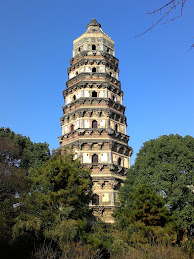上週二社會上爆發了一場語言、文化的激烈論戰,新聞的熱度至今未退。這個議題具有高度的政治性,我不擬介入;閩南語/台語、台灣文學/台語文學我也僅知一二,不好在這《語國一方》大放厥詞。
但我在備課時查閱了英語世界最大最全、14 巨冊的 Encyclopedia of Language & Linguistics, Second Edition, 2006 (《語言與語言學百科全書》第二版),讀到台灣語言現狀的專文 (Taiwan: Language Situation),作者是日本關西學院的 Joseph DeChicchis 教授。他在第一段的後三分之一處,似乎跳脫了學術上常見的客觀中性,寫出了隱含個人價值判斷的語句:
Some writers use the word 'Taiwanese' to refer to one of the languages of Taiwan; however, this usage is uninformed at best and chauvinistic at worst. [有些人用 "台語" 來指稱台灣的一種語言。然而,講得好聽一點,這種用法是所知不足,講得難聽一點,就是充滿了沙文主義。]

這個議題很值得探討,絕對是個博士論文的好題目,不同的觀點可能會得出不同的結論。中文的閩南語/台語我先不管,它的英文對應詞為何,我倒是比較感興趣。2011 年 3 月更新的 The Oxford English Dictionary Online (線上版《牛津英語詞典》) 記錄有案的是 Hokkien (為 "福建" 的音譯,英文發音為 [hoʊ 'kin]。按:Hokkien 之於閩南語,是不是跟 Taiwanese 之於台語一樣,也有點沙文?),不過卻查不到 Taiwanese "閩南語/台語" 的這個意思。然而我翻了其他的大型英語詞典,卻發現 Shorter Oxford English Dictionary, Sixth edition (《牛津英語詞典簡編》第六版) 、Random House (《藍登書屋》)、American Heritage (《美國傳統》) 均收有該義。
我 2011 年 5 月 31 下午 2:00 用英文版的 Google 上網搜尋,Hokkien 有 430 萬筆資料,遠遠高出另一個常用的 Southern Min (8 萬筆左右) 和其變體 South Min (2萬筆左右)。
Hokkien 這種說法對我們很多人來說可能有點陌生,但其使用之普遍深入、地位之穩固確立,殆無庸置疑。線上版《牛津英語詞典》的書證,還引用了 2003 年 8 月 10 日《紐約時報》對台灣導演楊德昌電影《一一》的影評:
Sitting through a three-hour movie, in Mandarin and Hokkien with subtitles, seemed more likely a chore than a pleasure.
事實雖然明擺在眼前,但用 Hokkien 來稱呼閩南語/台語,在台灣是個高度政治性的議題,短時間內大概不容易看得到。Taiwanese 雖然也有爭議,不過在這樣的政治氛圍與社會環境之下,或許還是能受到多數人的認可吧!
Hokkien, adj. and n.
Pronunciation: Brit. /həʊ 'kiːn/ , U.S. /hoʊ 'kin/
Forms: 18 Hok-Këèn, 18 Hok-Këen, 18 Hok-Keen, 18 Hokken, 18– Hok-kien, 18– Hokkien, 19– Hokkian.
Etymology: < Amoy hok kian.
A. adj. (attrib.).
1. Of, relating to, or designating a dialect of Southern Min traditionally spoken in south-eastern China, and now one of the major Chinese dialects of Malaysia, Singapore, Taiwan, and the Philippines. Cf. Min adj.3 and n.5
The northern and southern varieties of Hokkien together with Amoy form the subdialect Xiamen.
1832 W. H. Medhurst (title) A dictionary of the Hok-Këèn dialect of the Chinese language.
1841 J. Legge (title) A lexilogus of the English, Malay, and Chinese languages; comprehending the vernacular idioms of the last in the Hok-Keen and Canton dialects.
1893 R. Wallaschek Primitive Music vi. 185 In the native Hokken (Fo-kieen) pronouncing dictionaries, the Chinese characters are divided into eight classes to correspond with the number of tones.
1952 'Han Suyin' Many-splendoured Thing vii. 178 François shouted encouragement to the fishermen in French, and John Tam translated into Hokkien dialect.
2001 H. Chappell Chinese Grammar iii. 63 Evidence for the verbal origin of this marker can be found in a Spanish manuscript describing the grammar of a Southern Min or Hokkien dialect of the late sixteenth and early seventeenth centuries.
2. Of, relating to, or designating a member of a Chinese people traditionally inhabiting south-eastern China who speak a dialect of Southern Min, or their culture or cuisine.
1892 Times 8 July 7/6 Mr. Evans calls my attention to the traffic in Hokkien girls brought down and sold as household servants, and fears that they are virtually kept in a state of slavery.
1969 R. C. Bell Board & Table Games II. vi. 105 This popular Hokkien game for four players is played with a set of thirty-two Chinese dominoes.
1993 R. J. Antony et al. Secret Societies Reconsidered iv. 98 The colonial power felt more closely allied to the Hokkien mercantile community than to the Teochew traders and planters.
2004 Evening Standard (Nexis) 12 July 36 Also worth noting are the Nyonya fried rice and the 'hawker' meal-in-a-bowl dishes, such as the Penang Assam Laksa and the Hokkien Prawn Mee soup.
B. n.
1. The Hokkien dialect of Southern Min.
1865 Trans. Amer. Philos. Soc. 13 32 The mandarin word..becomes pak in Hok-Këen.
1957 M. Freedman Chinese Family & Marriage in Singapore 9 Of all the so-called Chinese dialects in use in Singapore Hokkien was the most common.
1970 R. Bruce Teach Yourself Cantonese 1 Hokkien is the speech of the Amoy and other places in South Fukien.
2003 N.Y. Times 10 Aug. 7/4 Sitting through a three-hour movie, in Mandarin and Hokkien with subtitles, seemed more likely a chore than a pleasure.
2. A member of the Hokkien people.
1895 Geogr. Jrnl. 3 290 The Chinese [in Singapore] are principally Tinchus or Taichus..; other clans or provinces are represented in the following order: Hokkiens, Kehs, and Macaos.
1927 R. J. H. Sidney In Brit. Malaya Today 144 A Hok-kien and a Teo-chew had a quarrel.
1978 Washington Post (Nexis) 1 Sept. A17, I had to speak Hokkien..because the majority of them were adult Hokkiens.
2003 New Straits Times (Malaysia) 21 Sept. 8 The Hokkiens have always been resourceful and entrepreneurial and since China's changed economic policy, Xiamen is a success story.











